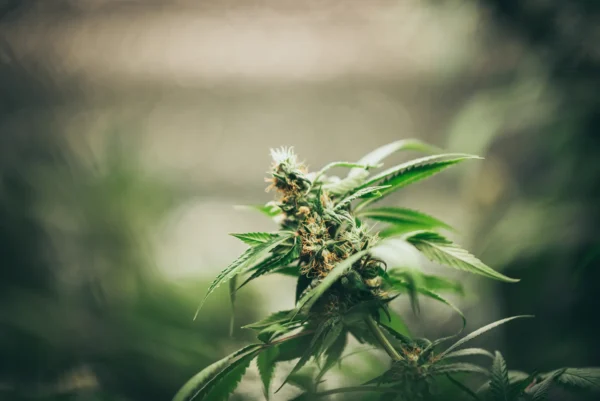Tourette’s syndrome is a condition that causes people to have tics – sudden, uncontrollable movements or sounds. These tics can be tough to deal with, especially for young people. Most people associate Tourette’s syndrome with coprolalia, the compulsive use of swear words or other inappropriate phrases. However, this only occurs in a minority of individuals. Common tics include blinking, facial movements, clicking and whistling.
While the condition typically improves with age and there are treatments available, they don’t always work well for everyone, and some have unpleasant side effects.
In mild cases, patients may not require specific intervention for their tics; however, individuals with more severe tics may experience social, academic, and professional difficulties, emotional stress, and impaired quality of life. Moreover, conditions such as attention-deficit hyperactivity disorder (ADHD), obsessive-compulsive disorder (OCD) and anxiety can exacerbate Tourette’s syndrome symptoms.
Treatments for Tourette’s Syndrome
There is no cure for Tourette’s syndrome, meaning treatments focus on helping individuals better manage the condition and its associated symptoms. This can include behavioural therapy and medications.
The medications typically used for Tourette’s syndrome include alpha-2 adrenergic agonists, antipsychotics, and anti-epileptics.
However, as mentioned, these medications are not always effective in reducing tics or any associated distress. There is, therefore, a need for alternative treatment options for individuals who do not respond to or cannot tolerate these medications.
Medical Cannabis and Tourette’s Syndrome
Researchers are starting to explore the effects medical cannabis may have on Tourette’s syndrome in an attempt to find new medications.
The human body has a system called the endocannabinoid system (ECS). This system is involved in regulating mood, anxiety, movement and other emotions or behaviours. Studies suggest that the ECS might not work properly in people with Tourette’s syndrome. Medical cannabis contains substances that interact with the ECS.
However, at the moment there is a lack of research in humans with Tourette’s syndrome.
The authors of a recent pilot study aimed to look at the use of medical cannabis in teenagers with Tourette’s syndrome. This was the first step in a series of planned studies, which need to be completed to determine whether medical cannabis is an appropriate treatment for Tourette’s syndrome, but the results were encouraging.
The Pilot Study
The study was conducted at one location with 10 participants aged 12 to 18 with Tourette’s syndrome. The study was designed so that the participants didn’t know if they were getting the real treatment or a placebo. The participants received either a whole cannabis extract containing 10mg/ml tetrahydrocannabinol (THC) and 15mg/ml cannabidiol (CBD) in the first part of the study and a placebo in the second part, or vice versa.
The study began with a 21-day period where the dose was gradually increased. All participants started on 1mg THC per day. Participants who weighed less than 50kg were increased to 5 mg/day of THC at 21 days. Participants who weighed more than 50kg were increased to 10 mg/day of THC for 21 days. Participants were kept stable on this dose for 7 days before assessment using the Parent Tic Questionnaire (PTQ).
Participants were considered a responder if they had a 55% change from baseline on the PTQ and a Clinical Global Impression-Improvement (CGI-I) score of a 1 or 2, with tolerable side effects. Participants who had not responded continued up-titrating until they reached 10mg/day (lower weight) or 20mg/day (higher weight). Outcomes were re-assessed on Day 71 +/- 4 days.
Results of the Study
Seven out of 10 participants completed the study. One participant receiving medical cannabis discontinued the study drug during treatment period 2 due to an adverse event but remained in follow-up and completed the outcome measures. One participant in the placebo arm had an adverse event in period one and declined to continue in the study. One participant was lost to follow up entirely.
At the Day 29 dose assessment, only one participant reported a clinically significant improvement at the lower dose. All other participants continued up-titration after Day 29. The mean change in Total Tic Score (YGTSS) was different in the active drug period compared to placebo.
These findings were consistent with adult studies of medical cannabis in TS and support the need for further RCTs to establish the efficacy of medical cannabis in adolescents with Tourette’s syndrome.
The most common adverse event was dizziness, which was reported by 6 (67%) individuals. Two participants required the active drug dose to be split into twice daily dosing due to adverse events (one with panic symptoms and dizziness, the other with fatigue). Two patients discontinued treatment due to adverse events (one while taking medical cannabis, one while taking placebo).
However, there were no serious adverse events during the study and no clinically significant abnormal laboratory test results. Furthermore, all adverse events related to the study drug were resolved, either during treatment or after ceasing treatment.
Conclusions
This study provides useful information on the use of medical cannabis for teenagers with Tourette’s syndrome. We need more research to know for sure how well medical cannabis works for Tourette’s syndrome and to figure out the right dose and form to use. Importantly we need to further understand the safety of medical cannabis when prescribed repeatedly. This is an even more important consideration in children and teenagers.





